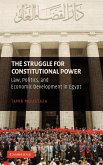This book sets out to explain the most foundational aspect of international law in international relations terms. By doing so it goes straight to the central problem of international law - that although legally speaking all states are equal, socially speaking they clearly are not. As such it is an ambitious and controversial book which will be of interest to all international relations scholars and students and practitioners of international law.
Table of contents:
Part I: 1. Law and power; 2. Law and international relations; 3. Power and the international law; (i) Power and the debate about whether resolutions and declarations constitute state practice; (ii) Power and the scope of international human rights; C. Power and critical legal scholarship; (iii) Power as a threat to international law?; Part II: 4. The principle of jurisdiction; (i) Jurisdiction and customary international law; 1. Internal rules; 2. Boundary rules; 3. External rules; (ii). Jurisdiction by analogy; 5. The principle of personality (i) Diplomatic protection; (ii) The 'International Minimum Standard'; (iii) Stateless persons and refugees; (iv) Non-governmental organisations; 6. The principle of reciprocity; (i) Reciprocity and the making of claims; 1. The Truman Proclamation; 2. The Arctic waters pollution prevention act; 3. An act to amend the Coastal Fisheries Protection Act; (ii) Reciprocity and negative responses to claims; (iii) Reciprocity and persistent objection; 7. The principle of legitimate expectation (i) Legitimate expectation, acquiescence and customary international law; (ii) Legitimate expectation and international institutions; (iii) Legitimate expectation and relative resistance to change; (iv) Legitimate expectation and mistaken beliefs in pre-existing rules; 1. State immunity from jurisdiction; 2. The breadth of the Territorial Sea; (v) Legitimate expectation and judgements of the International Court of Justice; (vi) Legitimate expectation and treaties; (vii) The 'Baxter Paradox'; Part III: 8. Fundamental problems of customary international law; (i) The chronological paradox; (ii) The character of state practice; (iii) The epistemological circle; (iv) Inferred consent; 9. International relations and the process of customary international law (i) The determination of 'common interests'; (ii) 'Cost' and the identification of legally relevant state practice; (iii) Repetition and relative resistance to change; (iv) Time and repetition; (v) The conspicuous character of some common interests; 10. Related issues; (i) Customary international law and treaties; (ii) The persistent objector; (iii) Jus Cogens; (iv) Jus Cogens and Erga Omnes rules; Part IV: 11. Conclusions (i) Distinguishing the 'New Haven School'; (ii) A response to Koskenniemi; (iii) The interdisciplinary enterprise; (iv) Reconsidering the 'realist' assumptions; Bibliography.
This book sets out to explain the most foundational aspect of international law in international relations terms. By doing so it goes straight to the central problem of international law - that although legally speaking all states are equal, socially speaking they clearly are not. An ambitious and controversial book.
This book explains the most foundational aspect of international law in international relations terms.
Hinweis: Dieser Artikel kann nur an eine deutsche Lieferadresse ausgeliefert werden.
Table of contents:
Part I: 1. Law and power; 2. Law and international relations; 3. Power and the international law; (i) Power and the debate about whether resolutions and declarations constitute state practice; (ii) Power and the scope of international human rights; C. Power and critical legal scholarship; (iii) Power as a threat to international law?; Part II: 4. The principle of jurisdiction; (i) Jurisdiction and customary international law; 1. Internal rules; 2. Boundary rules; 3. External rules; (ii). Jurisdiction by analogy; 5. The principle of personality (i) Diplomatic protection; (ii) The 'International Minimum Standard'; (iii) Stateless persons and refugees; (iv) Non-governmental organisations; 6. The principle of reciprocity; (i) Reciprocity and the making of claims; 1. The Truman Proclamation; 2. The Arctic waters pollution prevention act; 3. An act to amend the Coastal Fisheries Protection Act; (ii) Reciprocity and negative responses to claims; (iii) Reciprocity and persistent objection; 7. The principle of legitimate expectation (i) Legitimate expectation, acquiescence and customary international law; (ii) Legitimate expectation and international institutions; (iii) Legitimate expectation and relative resistance to change; (iv) Legitimate expectation and mistaken beliefs in pre-existing rules; 1. State immunity from jurisdiction; 2. The breadth of the Territorial Sea; (v) Legitimate expectation and judgements of the International Court of Justice; (vi) Legitimate expectation and treaties; (vii) The 'Baxter Paradox'; Part III: 8. Fundamental problems of customary international law; (i) The chronological paradox; (ii) The character of state practice; (iii) The epistemological circle; (iv) Inferred consent; 9. International relations and the process of customary international law (i) The determination of 'common interests'; (ii) 'Cost' and the identification of legally relevant state practice; (iii) Repetition and relative resistance to change; (iv) Time and repetition; (v) The conspicuous character of some common interests; 10. Related issues; (i) Customary international law and treaties; (ii) The persistent objector; (iii) Jus Cogens; (iv) Jus Cogens and Erga Omnes rules; Part IV: 11. Conclusions (i) Distinguishing the 'New Haven School'; (ii) A response to Koskenniemi; (iii) The interdisciplinary enterprise; (iv) Reconsidering the 'realist' assumptions; Bibliography.
This book sets out to explain the most foundational aspect of international law in international relations terms. By doing so it goes straight to the central problem of international law - that although legally speaking all states are equal, socially speaking they clearly are not. An ambitious and controversial book.
This book explains the most foundational aspect of international law in international relations terms.
Hinweis: Dieser Artikel kann nur an eine deutsche Lieferadresse ausgeliefert werden.








